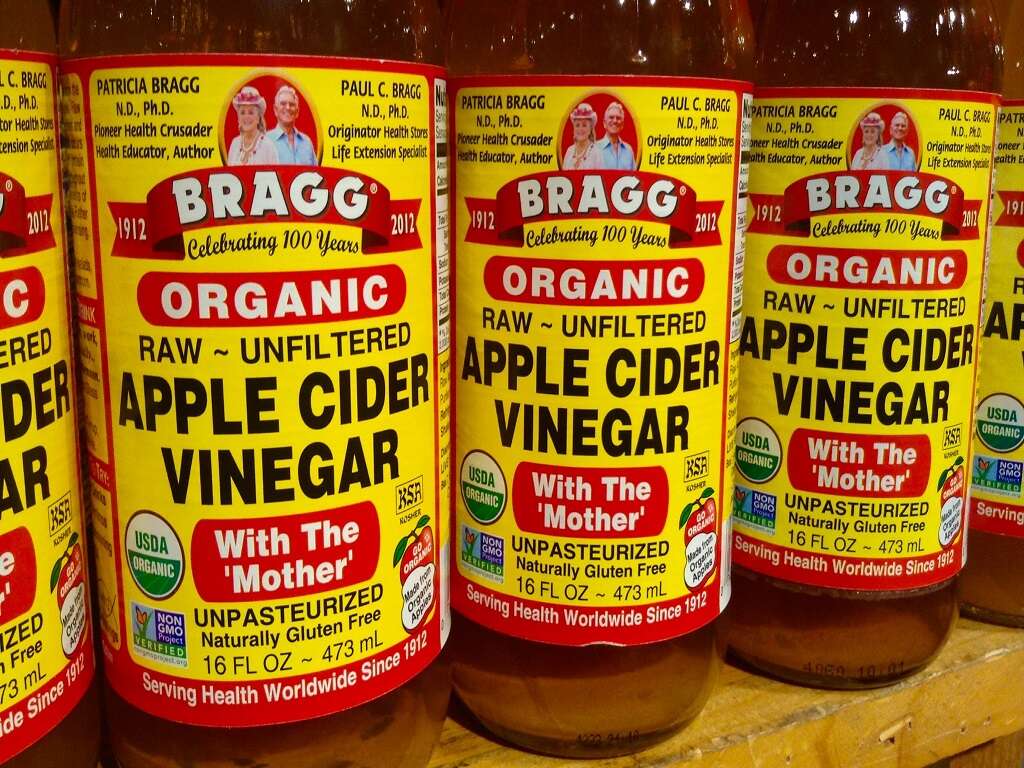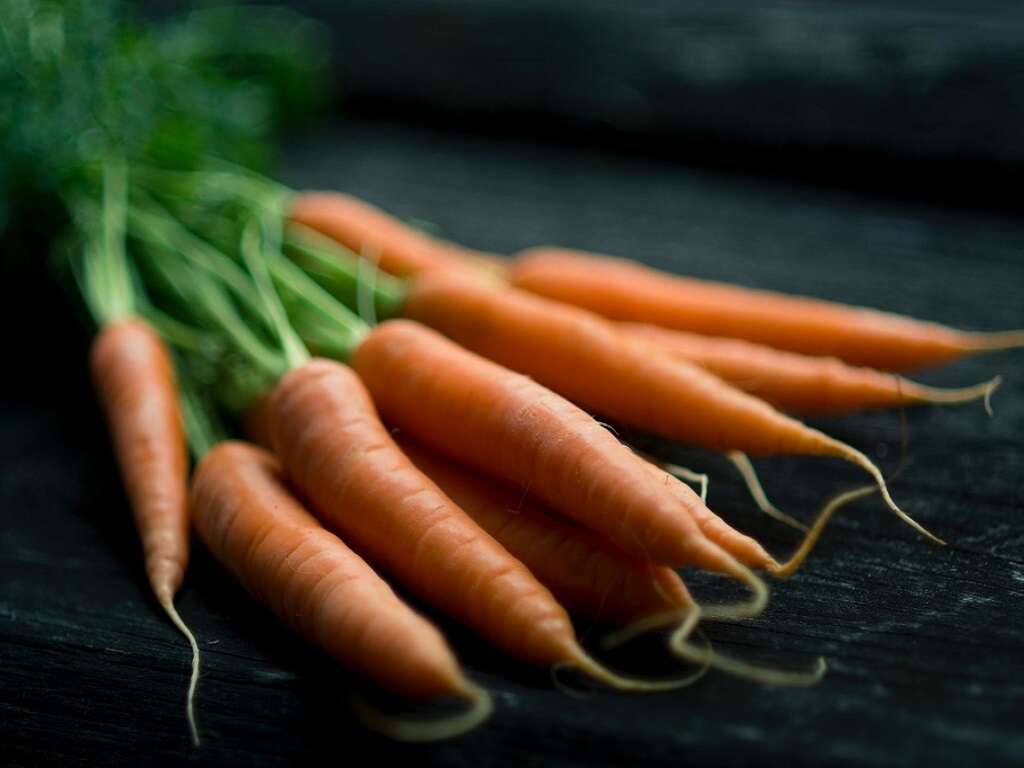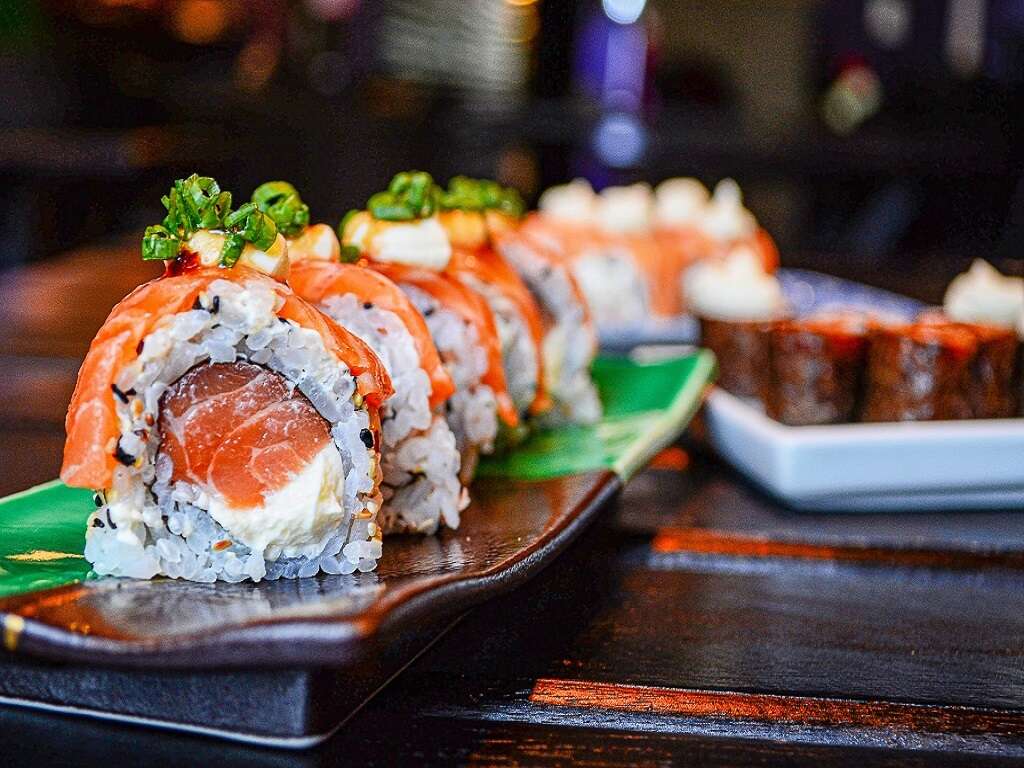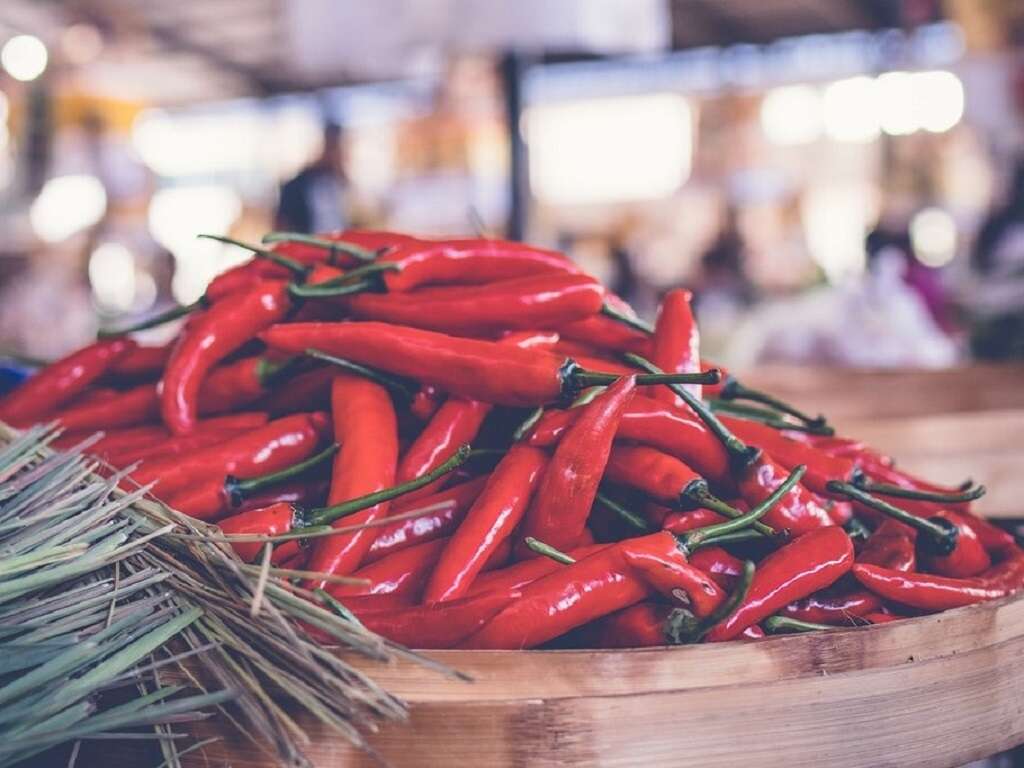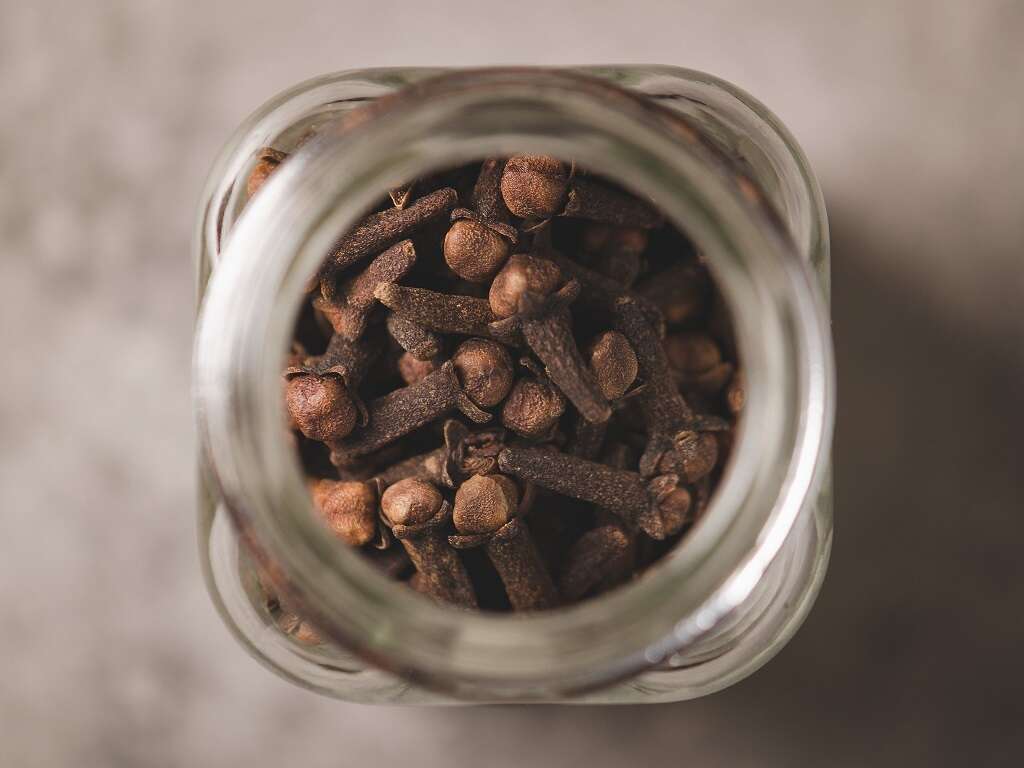50 Cancer Causing Foods to Avoid
 Article Sources
Article Sources
- 1. 'Cancer: Carcinogenicity of the Consumption of Red Meat and Processed Meat.’ World Health Organization, World Health Organization, www.who.int/news-room/q-a-detail/cancer-carcinogenicity-of-the-consumption-of-red-meat-and-processed-meat.”
- 2. 'Can Grilling Food Really Cause Cancer?' Cedars, www.cedars-sinai.org/blog/grilling-cancer-risk.html.
- 3. 'WHO Report Links Processed Meats to Cancer, but It's Important to Maintain Perspective.' Breastcancer.org, 19 Nov. 2015, www.breastcancer.org/research-news/report-links-processed-meats-to-cancer.
- 4. 'Cancer Causing Foods - Part III: Farmed Fish.' Attacking Cancer, 22 June 2019, attackingcancer.org/cancer-causing-foods-part-iii-farmed-fish/.
- 5. 'Do Fried Foods Cause Cancer? - Ask Dr. Weil.' DrWeil.com, 26 July 2016, www.drweil.com/diet-nutrition/food-safety/do-fried-foods-cause-cancer/.
- 7. 'Drinks That May Affect Your Cancer Risk: Cancer: UT Southwestern Medical Center.' Cancer | UT Southwestern Medical Center, utswmed.org/medblog/energy-drink-alcohol-cancer/.
- 8. 'Risk Factors for Cancer.' National Cancer Institute, www.cancer.gov/about-cancer/causes-prevention/risk.
- 9. 'Simon, Stacy. 'World Health Organization Says Very Hot Drinks May Cause Cancer.' American Cancer Society, American Cancer Society, 15 June 2016, www.cancer.org/latest-news/world-health-organization-says-very-hot-drinks-may-cause-cancer.html.
- 10. 'Fiolet, Thibault, et al. 'Consumption of Ultra-Processed Foods and Cancer Risk: Results from NutriNet-Santé Prospective Cohort.' BMJ (Clinical Research Ed.), BMJ Publishing Group Ltd., 14 Feb. 2018, www.ncbi.nlm.nih.gov/pmc/articles/PMC5811844/.
- 11. 'Lu, Wei, et al. 'Dairy Products Intake and Cancer Mortality Risk: a Meta-Analysis of 11 Population-Based Cohort Studies.' Nutrition Journal, BioMed Central, 21 Oct. 2016, www.ncbi.nlm.nih.gov/pmc/articles/PMC5073921/.
There are many risk factors associated with cancers, including an unhealthy diet. Improving diet and making other lifestyle changes help reduce the risk of chronic inflammation and obesity. These conditions may be caused by eating too much sugar, processed foods and poorly prepared meals. Another risk factor for cancer is oxidative stress, which happens when the body and organs are under strain due to excess free radicals. Oxidative stress may be lessened by incorporating antioxidants into the diet.
A healthy diet and lifestyle may help prevent cancer. Certain foods are classified as known or probable carcinogens and should be avoided if following a cancer-friendly diet. Other foods should be consumed in moderation.
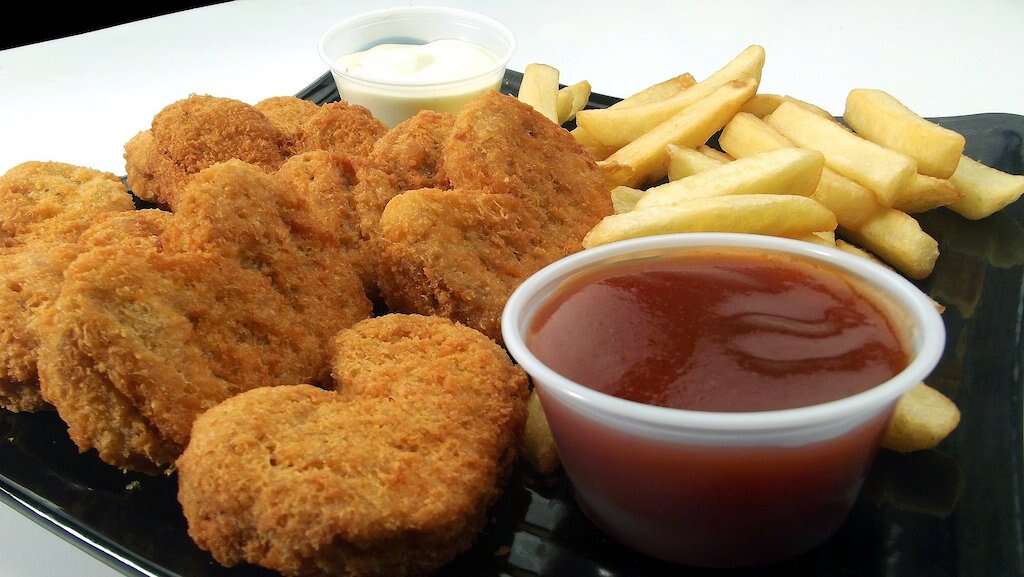
1. Processed Meats
Meat that's been cooked at high temperatures and altered through smoking, salting, fermentation or curing is categorized as processed meat. This method of cooking is used to preserve meat for longer periods and enhance its flavor. Deli meats, frankfurters, ham, pepperoni, roast beef and chorizo are examples of processed meats.
Processed meats are classified as Group 1 carcinogens, which can put people at risk for developing stomach or colon cancer.1‘Cancer: Carcinogenicity of the Consumption of Red Meat and Processed Meat.’ World Health Organization, World Health Organization, www.who.int/news-room/q-a-detail/cancer-carcinogenicity-of-the-consumption-of-red-meat-and-processed-meat.” It's advisable to cut down the consumption of processed meats or choose suitable alternatives such as roast chicken or plant proteins.

2. Red Meat
A diet high in red meat may increase a person's risk of developing certain cancers. Moderate consumption of red meat or eliminating it altogether, may reduce the risk of certain cancers. Red meat is classified as a Group 2A carcinogen, which means it's probably carcinogenic in humans.1‘Cancer: Carcinogenicity of the Consumption of Red Meat and Processed Meat.’ World Health Organization, World Health Organization, www.who.int/news-room/q-a-detail/cancer-carcinogenicity-of-the-consumption-of-red-meat-and-processed-meat.”
Individuals may want to consider replacing red meat with fresh organic fish, free-range chicken or plant-based foods. Red meats include goat, beef, pork, lamb, horse, veal and other meats derived from the muscles of mammals.
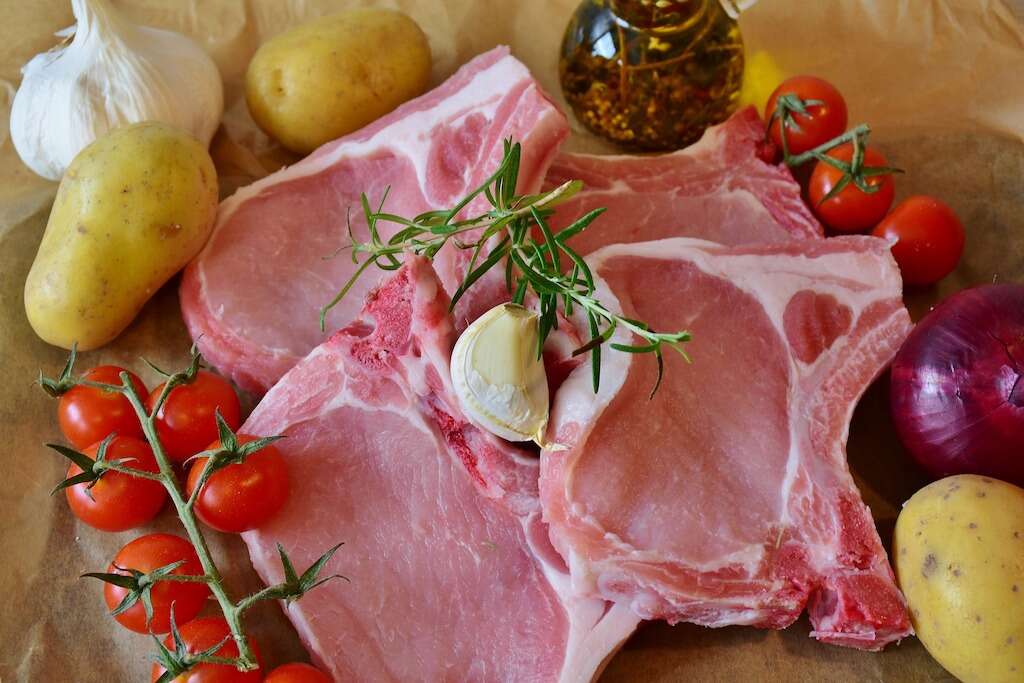
3. Smoked Meats
Smoked meats fall into the same Group 1 carcinogen category as processed meats. Smoked meats contain chemical preservatives to provide a longer shelf life. The smoke is added to give the meat a greater depth of flavor.
Smoke contains hydrocarbons that may increase a person's risk of developing digestive tract cancers. Avoiding a high intake of smoked hams, bacon, salami and smoked sausage or substituting fresh meat for smoked meat may lower the risk of certain cancers.
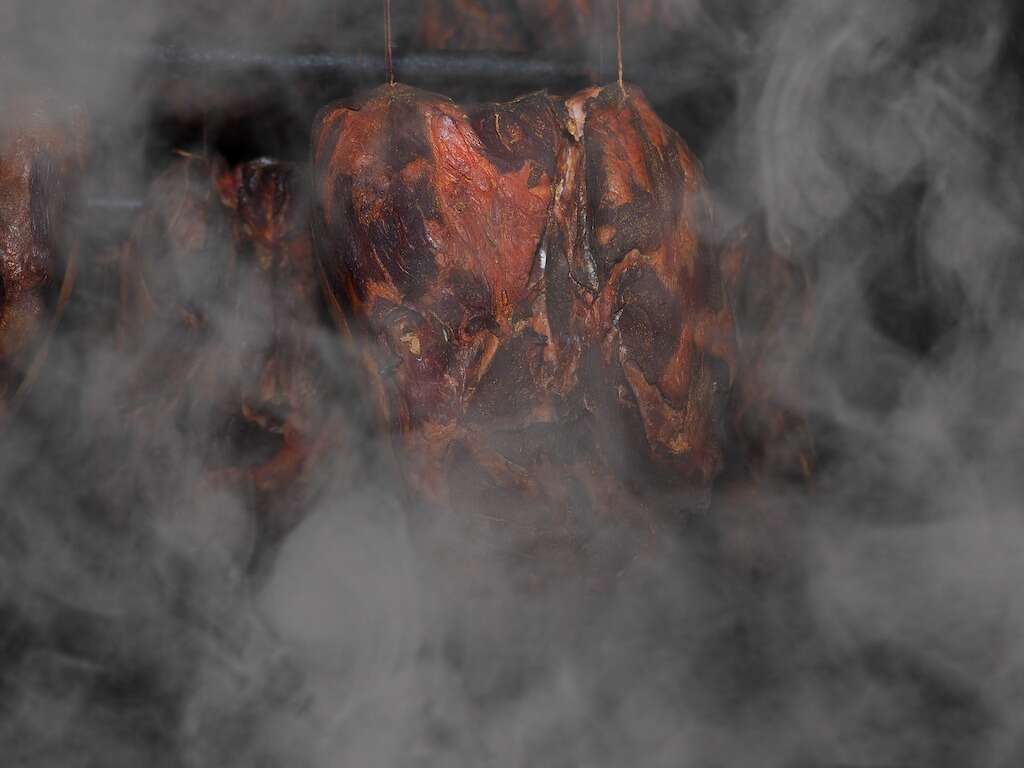
4. High-Fat Meat
Meat that's high in trans or saturated fat may elevate the risk of colon cancer. Meat fats can be a great source of fats in the diet, but there are good fats and bad fats. Beef, pork and lamb contain some bad fats and should be consumed sparingly.
Individuals should consider replacing fatty meats with lean meats, such as chicken, turkey, ostrich, venison and fish. Lean proteins provide a healthier alternative to high-fat meats.

5. Chargrilled Meat
Chargrilled meat is cooked on a grill over a live fire. When the fat from meat drips into the fire, it may become coated in chemicals and splash back onto the food. Meat cooked at high temperatures can contain blackened, charred bits that may increase the risk of cancer.
There are ways to enjoy barbecued meat while lessening the risk of ingesting cancer-causing chemicals. Flip the meat frequently to avoid blackened marks, use gas instead of an open flame, foil-wrap meat and opt for leaner cuts of meats.2‘Can Grilling Food Really Cause Cancer?’ Cedars, www.cedars-sinai.org/blog/grilling-cancer-risk.html.

6. Dried Meat
Dried meat, also known as beef jerky or biltong, is meat that's been spiced and air-dried. Biltong is cured with vinegar, and jerky may have smoke added to enhance flavor. These dried meats are classified as a Group 1 carcinogen, which may increase an individual's likelihood of developing some cancers.
Research indicates that consuming dried meat may increase the risk of cancer by 18 percent.3‘WHO Report Links Processed Meats to Cancer, but It’s Important to Maintain Perspective.’ Breastcancer.org, 19 Nov. 2015, www.breastcancer.org/research-news/report-links-processed-meats-to-cancer. The increased risk may seem low, but it's a good idea to cut back on eating jerky.

7. Chinese-Style Salted Fish
There are two types of Chinese-style salted fish, hard and soft. According to recent research, both types may increase the risk of stomach and nasopharyngeal cancer if consumed frequently over a period of years, starting in childhood.
The salted fish is prepared in such a way that cancer-causing N-nitroso compounds may be released during the process of decomposition, salting and drying. The World Health Organization has classed salted fish as a Group 1 carcinogen, and regular consumption may increase the risk of developing cancer by 15 percent.1‘Cancer: Carcinogenicity of the Consumption of Red Meat and Processed Meat.’ World Health Organization, World Health Organization, www.who.int/news-room/q-a-detail/cancer-carcinogenicity-of-the-consumption-of-red-meat-and-processed-meat.”

8. Farmed Salmon
Fish is a vital source of omega-3 fatty acids and should be included in a healthy diet, but the origin of the fish is important. Commercially fish farms may use some potentially toxic chemicals to manage pests, according to some research studies.
Synthetic pigments similar to the naturally occurring canthaxanthins may be used to give farmed salmon a coral color. Wild salmon eat krill and shrimp, giving them a natural pink hue. Although more research is needed, synthetic pigments and the high dioxin levels in farmed salmon may increase the risk of cancer.4‘Cancer Causing Foods - Part III: Farmed Fish.’ Attacking Cancer, 22 June 2019, attackingcancer.org/cancer-causing-foods-part-iii-farmed-fish/.

9. Canned Foods
There are two reasons why canned foods may cause cancer. First, the levels of sodium in canned foods may be quite high, possibly putting people at risk of developing gastric cancer.
Secondly, the inside of a can is normally lined with a thin film of BPA plastic. There is some evidence that this estrogen-like compound confuses the endocrine system, potentially increasing the risk of developing cancer. However, any significant increase in risk seems to be related to ingesting large quantities of BPA.
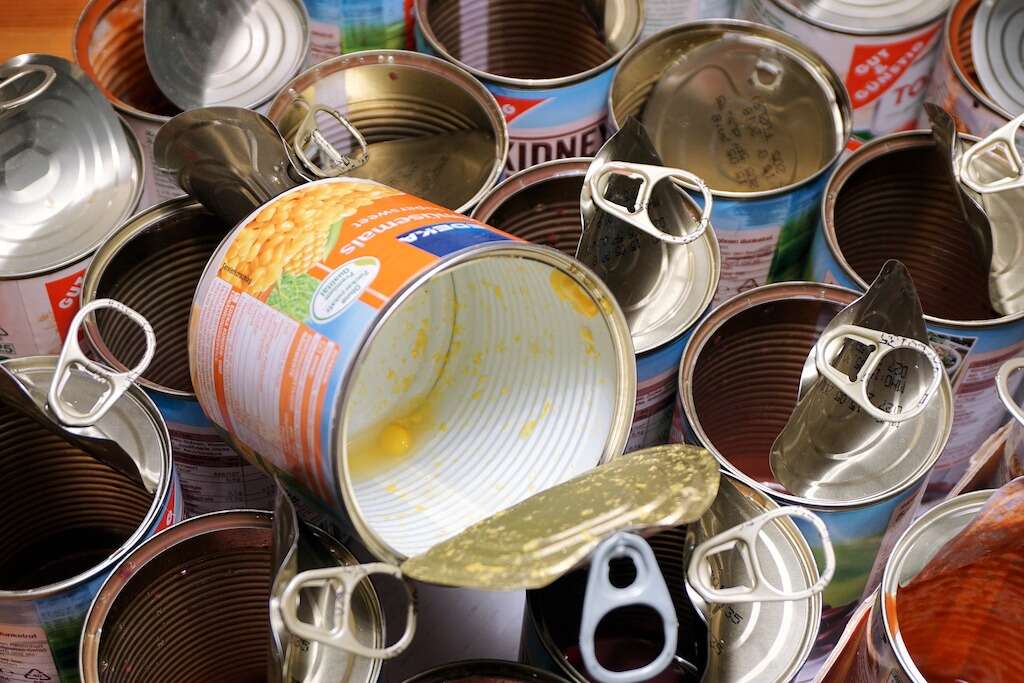
10. Deep-Fried Foods
Deep frying food at extremely high temperatures for a long period of time may cause the formation of a toxic compound called acrylamide, a cancer-causing carcinogen. The darker the color of the fried food, the more carcinogenic properties it may contain.
If food has to be deep-fried, consider lowering the temperature and using an unsaturated oil such as sunflower or olive oil. Storing starchy vegetables in the fridge may increase the level of acrylamide produced if they're then deep-fried.5‘Do Fried Foods Cause Cancer? - Ask Dr. Weil.’ DrWeil.com, 26 July 2016, www.drweil.com/diet-nutrition/food-safety/do-fried-foods-cause-cancer/.
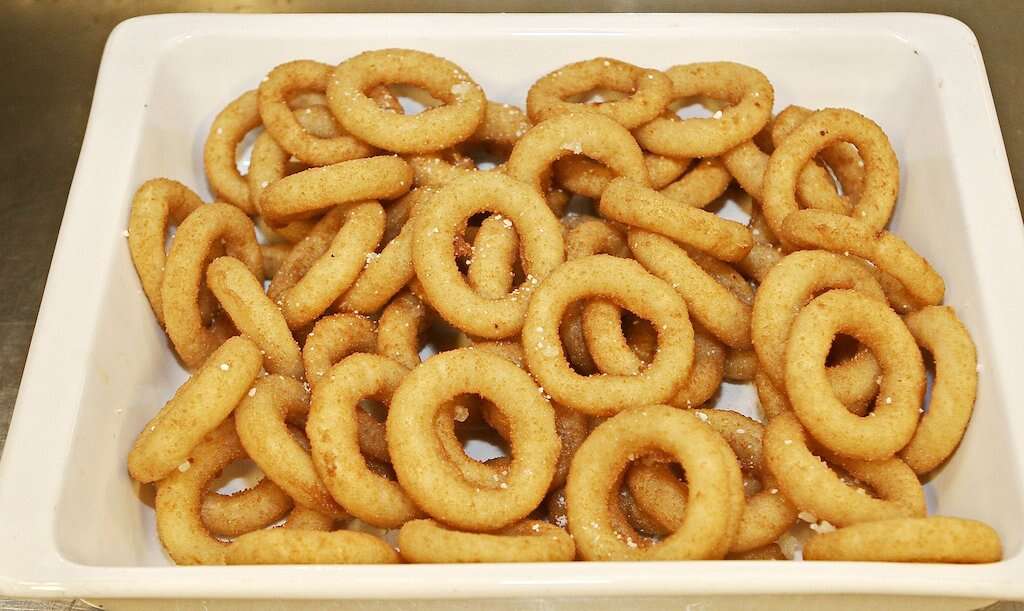
11. Dairy Products
Dairy products such as milk and cheese contain hormones that may be linked to ovarian, breast and prostate cancers. A moderate amount of dairy is good for bone health, but consuming too much dairy may increase a person's risk of cancer.
There are a number of dairy substitutes available that can offer tasty alternatives. Coconut yogurt can replace dairy yogurt, and coconut cream is regularly used in ice creams. Almond, oat or rice milk may be used in hot beverages instead of dairy milk.

12. Microwave Popcorn
Prepackaged microwave popcorn is convenient but can be laden with perfluorinated compounds that may cause cancer. These toxic compounds may be found in the popcorn's plastic-lined bag that prevents oil from leaking out. When heated, the compounds may infiltrate the popcorn. In addition, microwave popcorn can be loaded with flavoring additives that may be cancer-causing.
Popped corn itself is considered a healthy snack and isn't a primary source of perfluorinated compounds. Making popcorn on the stovetop can allow a person to avoid adding these compounds to the diet.

13. Soft Drinks
Regular soft drinks typically contain a high amount of sugar. Daily consumption of sugary drinks can lead to obesity, which may elevate a person's risk for pancreatic, thyroid, breast and gallbladder cancers. According to studies, consuming just 100 milliliters of sugary drinks per day may increase the risk of overall cancer by 18 percent.[[6]]
Dark-colored soft drinks contain a caramel dye, 4-Mel, which showed a carcinogenic potential, based on animal studies. FDA notes the levels of 4-Mel in foods are currently lower and don't appear to have health risks.

14. Alcohol
There may be a direct correlation between excessive consumption of alcohol over time and alcohol-related cancers. Moderate alcohol consumption and binge drinking may also increase a person's chance of getting cancer.
Heavy drinkers may be at risk of developing esophageal, liver and head and neck cancers. There also may be a link between colorectal and breast cancers and alcohol, according to recent scientific research. Alcohol may inhibit the absorption of vital cancer-fighting nutrients, and the body turns ethanol into acetaldehyde, which is a known carcinogen.7‘Drinks That May Affect Your Cancer Risk: Cancer: UT Southwestern Medical Center.’ Cancer | UT Southwestern Medical Center, utswmed.org/medblog/energy-drink-alcohol-cancer/.

15. Refined Sugar
Obesity is one of the possible risks for developing cancer, and a diet rich in refined sugars may lead to excess body fat. Having too much body fat may put a person at risk for a host of diseases, one of which is cancer.
Cancer of the esophagus is a form of cancer commonly linked to excess sugar consumption. To limit potential risks, it's best to stick to the American Heart Association's recommended daily maximum intake of added sugar, which is 25 for women to 37.5 grams for men.

16. Potato Chips
Potato chips may contain a chemical called acrylamide, which is formed when certain foods are cooked at excessively high temperatures. Cooking methods can include frying, baking or roasting.
Acrylamide is a combination of amino acids and sugars naturally found in foods. According to research, it may be carcinogenic to humans. It can be found in plant products, particularly potatoes and grains fried or roasted at high-temperature cooking. To limit any potential risk, eat potato chips and French fries in moderation as part of a healthy diet.

17. Hydrogenated Oils
Hydrogenation is the process of adding hydrogen to a liquid fat to make it solid, which creates hydrogenated oils or artificial trans fats. Partially hydrogenated oils are added to some foods to prolong their shelf life, but this may increase the risk of prostate and other cancers for those who eat them.
Common foods containing partially hydrogenated oils include prepared baked goods, coffee creamers, packaged snacks and margarine. To avoid consuming hydrogenated oils in excess, individuals are encouraged to check a packaged food's ingredient list.

18. Food Dyes
Certain dyes commonly used in food are classed as carcinogens and may be related to an increased risk of various health issues, although studies show mixed results. Red No. 3, or erythrosine, was linked with thyroid cancer in animal studies. The FDA issued a partial ban on erythrosine in 1990, but the ban was later removed..
Red No. 3 dye is commonly found in foods such as maraschino cherries, canned fruit, Popsicles, candy and processed snack foods. Red No. 3 has been replaced in many products with Red 40.

19. Caramel Coloring
Commonly found in dark sodas, beer, chocolate and cough drops, caramel coloring is another colorant that may increase the risk of cancer. Caramel coloring is also one of the most widely consumed colorants.
During the manufacturing process of these food items, a carcinogen is formed, which may increase the risk of cancer in those who consume the products. Routine consumption of caramel-colored soft drinks and foods should be avoided by those on a cancer prevention diet. Caramel candy doesn't contain the same carcinogen as the coloring.

20. White Flour
White flour is so refined and processed that it may clog up the digestive system, cause weight gain and raise blood sugar levels, especially when consumed in high amounts. This may lead to a number of health problems, including obesity.
Also, white flour is deficient in nutrients and is high on the glycemic index. Foods that are high on the glycemic index may increase a person's risk of developing lung cancer and, of course, diabetes.

21. Boiling Hot Beverages
The World Health Organisation classifies boiling hot beverages as probable carcinogens. Drinks such as hot chocolate, coffee and tea should be brewed at temperatures lower than 149 degrees Fahrenheit. Hot liquids may also damage the lining of the esophagus.
According to a recent study, there's a possible link between high amounts of the South American tea called maté and esophageal cancer. Maté is traditionally served at extremely high temperatures.8‘Risk Factors for Cancer.’ National Cancer Institute, www.cancer.gov/about-cancer/causes-prevention/risk. Moderate consumption of hot beverages brewed at lower temperatures may help prevent these issues.

22. Fast Food
Fast food may contain excess amounts of fat, sugar, starch and preservatives, which may lead to obesity-related cancers as well as other health issues. Excess weight causes inflammation, which may be mediator of cancer.
People who frequently eat fast food are at greater risk of developing kidney, colorectal and pancreatic cancers. Studies also indicate a risk of endometrial cancer caused by an increase in sugars. Consumption of fast food such as fries, hamburgers, hot dogs, pizzas and milkshakes should be kept to a minimum.

23. Sweets
Eating a lot of dietary sugar can lead to weight gain, which may increase the risk of breast and other cancers. Women who are obese after menopause may be at the greatest risk.
Those who consume large quantities of sweets may increase their likelihood of getting breast cancer by 27 percent. Sweets and other sugary items can raise insulin and estrogen levels and potentially lead to breast cancer. Additionally, a high BMI caused by weight gain from excess sugar may result in colorectal cancer development.

24. Saturated Fat
Eating a high-fat diet doesn't necessarily increase a person's risk of developing cancer, depending on the type of fat consumed. A diet high in saturated fat may increase the risk of prostate, breast and lung cancers if the fat is consumed regularly, especially when the diet is also high in carbohydrates.
Foods high in saturated fats include chicken skin, lard, palm oil and whole fat dairy products. Unsaturated fats found in vegetables, fish and nuts are healthy fats that should be included in an anti-cancer diet.

25. Boxed Meals
Boxed meals and shelf-stable packaged foods commonly contain a variety of unhealthy ingredients designed to add flavor and preserve the items. As well as containing potentially cancer-causing ingredients, some boxed meal packaging may contain a possible carcinogenic chemical called diethylhexyl phthalate (DEHP).
Boxed meals packaging tends to have a lot of plastic containing chemically produced plasticizers. Eating food exposed to these possible carcinogens may increase a person's risk of developing cancer. Reducing the consumption of packaged items may help limit this risk.

26. Packaged Pastry Dough
Store-bought pastry dough may contain flour with potassium bromate, a possibly cancer-causing oxidizer that strengthens flours and helps baked goods rise better. The International Agency for Research on Cancer has identified potassium bromate as a possible carcinogen. The compound was banned in several countries.
The reactive molecules of potassium bromate may damage DNA, particularly in the liver and digestive system, ultimately playing a role in the development of cancers in these areas. To minimize the risk of exposure to unhealthy carcinogenic ingredients, bakers should make their dough from scratch.

27. Pantry Foods
Pantry foods are shelf-stable items that can be stored in the pantry for long periods of time. These ultra-processed items may be loaded with hydrogenated oils that can cause inflammation. When inflammation becomes chronic, there's a high risk of developing cancer.
Although certain pantry food items may be low in additives and chemicals that may increase the risk of cancer, it's always best to err on the side of caution and read the labels. Examples of pantry foods include ready-made pasta with sauce and packaged soups.

28. Packaged Desserts
Packaged desserts are mass-produced baked goods that provide little in the way of nutritional value. Additionally, they are typically ultra-processed and contain an excess of additives, sugar and fat.
According to recent studies, there is a link between bowel cancer and diets containing an abundance of ultra-processed foods. According to one study, a 10 percent increase in mass-produced, ultra-processed foods in the diet may increase the risk of breast cancer.9‘Simon, Stacy. ‘World Health Organization Says Very Hot Drinks May Cause Cancer.’ American Cancer Society, American Cancer Society, 15 June 2016, www.cancer.org/latest-news/world-health-organization-says-very-hot-drinks-may-cause-cancer.html.

29. Instant Mashed Potatoes
Instant mashed potatoes are usually highly processed and may be excessively high in sodium. Although an essential nutrient, too much sodium can wreak havoc on the body and may increase a person's risk of stomach cancer.
A small serving of 100 grams of instant mashed potatoes may contain just under 2,000 milligrams of sodium, which is more than the recommended daily allowance of 1,500 milligrams. Some people may add salt and butter to the potatoes, further increasing the sodium content.

30. Fried Onion Rings
Onions are an impressive source of nutrients and contain cancer-fighting compounds. But, when onions are deep fried, they may rapidly change from cancer-fighting to cancer-causing. As with most deep-fried foods, consuming fried onion rings on a weekly basis may increase a man's risk of developing prostate cancer.
The use of hydrogenated oil that contains saturated fat, the high temperature of the cooking oil and the elevated level of sodium in fried onion rings may all increase the risk of cancer.

31. Reconstituted Meat Products
Reconstituted meat products include food items such as fish patties and chicken nuggets. These meat products are emulsified and processed and considered a Group 1 carcinogen. This group of carcinogens also includes alcohol and tobacco.
A daily intake of a mere 50 grams of reconstituted meat products may increase a person's risk of developing cancer by 20 percent. A diet that includes a high intake of reconstituted meat products may also increase the risk of colorectal cancer.

32. Sugarcoated Dried Fruit
Dried fruit is a nutritious snack filled with fiber and antioxidants. Unfortunately, some manufacturers coat dried fruit with syrup, sulfites and a lot of sugar, which may strip it of its overall nutritious value. Sulfites are a preservative that had been linked to an increased risk of colorectal cancer.
Try to eat fruits that have been naturally dried in the sun or on a rack using hot air, like prunes, figs, dates and raisins. Avoid candied fruit and stick to minimally processed dried fruit if following a cancer-friendly diet.

33. Monosodium Glutamate
Monosodium glutamate, or MSG as it's commonly known, is a flavor enhancer frequently used in Asian dishes and fast foods. Although labeled as GRAS (generally recognized as safe) by the FDA, its use remains controversial. MSG had been associated with obesity, which is linked to 13 types of cancers.
Although more research is needed, MSG may interfere with and damage the mitochondria in cells throughout the body. Cells with damaged mitochondria normally die off, but the ones that remain in the body may turn cancerous.

34. Cotton Candy
Cotton candy is made from pure sugar, spun at high temperatures. Colorants and flavoring are often added to give it more appeal. Cotton candy is chemically dyed sugar, loaded with a variety of artificial colors.
Consuming sugar can raise a person's blood glucose levels. The risk of cancer from cotton candy is currently unknown, but it is best to avoid regularly consuming high sugary foods.

35. Burnt Toast
Toast should never be eaten when burned, but rather cooked to a golden brown. When starchy foods such as bread are overcooked and turn a shade of black, there's a possibility they may contain carcinogens.
The compound acrylamide is formed when an amino acid and sugar bind together at high temperatures. A person would have to consume a significant amount of burnt toast for any negative impact, but it's always best to avoid eating anything burnt.

36. Syrup
Syrup lovers should consider purchasing authentic maple syrup as opposed to manufactured pancake syrups. These syrups are made from high-fructose corn syrup, which may play a role in disease development if consumed in large amounts.
Corn syrup can drastically increase the sugar content in an individual's diet and contribute to excess body fat, which may lead to the development of several types of cancer. There's also a possibility that consuming corn syrup may be linked to tumors in the colon, although more research is needed for confirmation.

37. Tomato Ketchup
Homemade tomato or craft ketchup may be a better choice than mass-produced tomato ketchup. Commercially prepared ketchup may contain a variety of unnecessary ingredients, such as MSG, sugar, high fructose corn syrup and flavorings.
When consumed in large quantities over a long period of time, ketchup may contribute to an array of health issues, including obesity, which increases the risk of certain cancers. To avoid these issues, purchase ketchup made from fresh tomatoes or make it at home and limit your consumption.

38. Pickled Foods
Pickled foods, such as sauerkraut, cucumbers and peppers, should be consumed in small amounts. A diet rich in pickled foods may increase a person's risk of developing stomach, bowel or colon cancer because of ingredients such as sodium, nitrates and nitrites.
Just 100 grams of a pickled food may contain more than 20 percent of a person's recommended daily allowance of sodium. The nutritional value of pickled foods may vary according to the brand, so always check labels before purchasing or make your own pickled veggies at home.

39. Fruit Juice
Boxed or bottled fruit juice are often loaded with sugar, colorants and additives. There's a known link between high sugar drinks and obesity. Consuming fruit juices on a daily basis may lead to weight gain and an increased risk of colorectal and breast cancers.
Freshly pressed juices don't contain the same amount of concentrated sugars and calories, and they're the healthier choice. A moderate amount of fruit juice may be safe to consume if incorporated into a healthy, balanced diet.

40. Unprocessed Peanut Butter
There's a possibility that unprocessed peanut butter may contain carcinogenic aflatoxins, which are toxins produced by mold fungi that may be found on crops such as corn and nuts. Chronic, low-level exposure to aflatoxins may increase a person's risk of developing liver cancer, according to some studies.
Commercially produced peanut butter normally undergoes testing for harmful toxins, which are removed during processing. It's best to avoid nut butters and peanut butters in large quantities.

41. Prepared Breakfast Cereals
Prepared breakfast cereals may contain colorants, flavors and high amounts of added sugar. Some researchers are concerned with the small amounts of glyphosate found in cereals as well, although the Environmental Protection Agency states that glyphosate is unlikely to cause cancer when used as directed.
Since commercially prepared cereals may contain an excessive amount of sugar, these foods may contribute to obesity and inflammation and lead to the development of cancer. Sugary cereals typically contain minimal fiber and have high-calorie counts, making them a not-so-healthy breakfast option.

42. Instant Noodles
The excessive consumption of some types of processed instant noodles may carry a potential cancer risk, according to some studies. Individuals should check the ingredients and ensure there aren't high amounts of MSG, hydrogenated oils, sodium and artificial flavorings.
These enhancers commonly found in processed foods may contribute to an imbalance of fatty acids in the body and worsen inflammation, which may, in turn, lead to cancer. Gastrointestinal and liver are two types of cancer commonly linked to a diet high in processed foods.

43. Artificial Sweeteners
Most artificial sweeteners are regulated and considered safe to eat in small amounts, but certain sweeteners such as saccharin should be avoided. According to a study done by Environ Health Perspective, saccharin may be carcinogenic to humans.
Artificial sweeteners are a lot sweeter and stronger than sugar, so only a small amount is typically needed to sweeten food or drink items. While they may be a good alternative to sugar, care needs to be taken with the type of sweeteners used.

44. Bottled Salad Dressing
Prepared salad dressings may contain sodium benzoate, a food additive that the FDA allows in food, but only in very small quantities. While sodium benzoate is considered safe, it can lead to the formation of benzene when combined with ascorbic acid or vitamin C.
Benzene is classified as a Group 1 carcinogen, which means there's a direct link to cancer development. Additionally, bottled salad dressings may contain unnecessary quantities of sugar. Making your own salad dressing at home is a healthier alternative.

45. Bottled Applesauce
Bottled applesauce, especially if sweetened, often contains high amounts of sugar and high fructose corn syrup, both of which may increase inflammation in the body. Although more research is needed, some studies suggest that consuming high fructose corn syrup may increase a person's risk of developing certain cancers.
Alternatives are making homemade unsweetened applesauce from scratch, which doesn't contain any preservatives or added sugar or purchasing low-sugar bottled applesauce.

46. Sweetened Condensed Milk
Sweetened condensed milk is a dairy-based baking ingredient made from milk and high amounts of refined sugar. Prepared dairy products that are high in fat and sugar, such as sweetened condensed milk, may be linked to a poor prognosis after a breast cancer diagnosis.10‘Fiolet, Thibault, et al. ‘Consumption of Ultra-Processed Foods and Cancer Risk: Results from NutriNet-Santé Prospective Cohort.’ BMJ (Clinical Research Ed.), BMJ Publishing Group Ltd., 14 Feb. 2018, www.ncbi.nlm.nih.gov/pmc/articles/PMC5811844/.
Consuming high-fat dairy products loaded with sugar also may be linked to a higher risk of prostate cancer. Consuming low-fat dairy products doesn't carry the same risk as eating their high-fat, sweetened counterparts.

47. Eggs
Eggs are a nutritious food, but they need to be consumed in moderation. The recommended allowance is two eggs per day. Eating more eggs on a daily basis may increase a person's risk of cancer, although this topic is controversial and the research is limited.
According to some studies, a higher daily intake of eggs may put a person at greater risk of developing colon, rectal and prostate cancers. On the other hand, many studies found that moderate consumption of eggs helps improve heart and eye health.

48. Prepared Diet Foods
Diet foods are believed to be good for the waistline because they're low in sugar and fat. In commercially prepared diet foods, artificial sweeteners and additives are often used to make up for the loss of flavor normally derived from sugar and fat.
These replacements often contain partially hydrogenated oils, which had been linked with cancer and other health concerns. As of 2006, the FDA requires manufacturers to list the amount of trans fats on the labels. Granola bars and snack packs are considered diet foods.

49. Refined Carbohydrates
Carbohydrates are commonly found in sugars, fiber and starches. Carbohydrates are a necessary part of any diet, provided they're the right type of carbs. Good carbs come from fruit, vegetables, oats and brown rice. Refined carbs are found in sugary drinks, some pastas and processed foods.
Eating large quantities of refined sugars increases a person's insulin levels, which may in turn stimulate the growth of some types of cancer cells, particularly colorectal, breast, prostate, colorectal and pancreatic cancers.

50. Bottled Smoothies
A freshly made smoothie or one prepared at home is filled with nutrients and plant compounds with antioxidant qualities. Commercially prepared, bottled smoothies typically contain preservatives, sugars and filler juices. The added sugar causes a spike in blood glucose levels.
Consuming too much sugar leads to obesity and excess inflammation, two factors that increase the risk of certain cancers. Instead of commercially prepared versions, opt for smoothies made with fresh ingredients and fruits naturally low in sugar.



